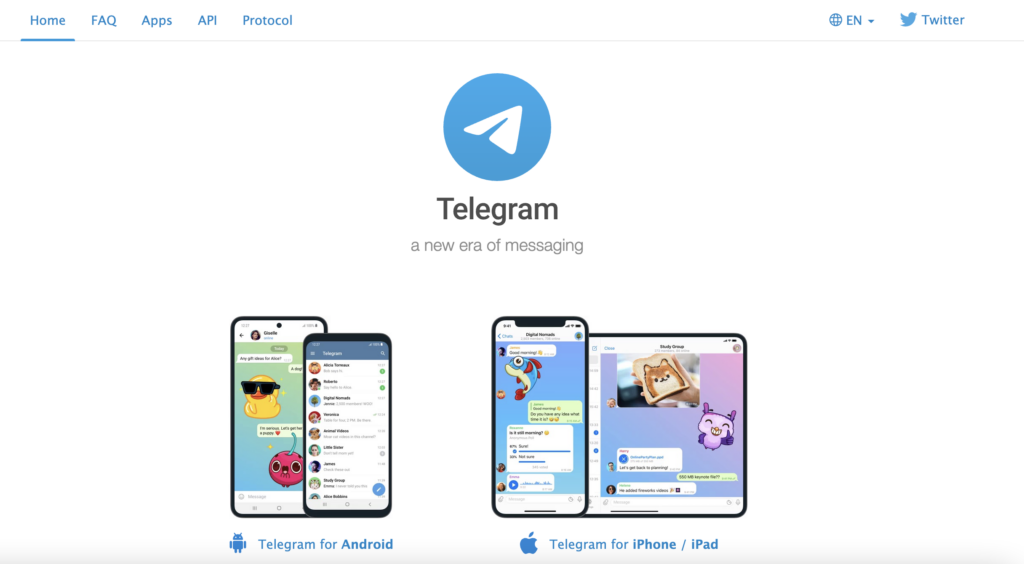
Telegram is a popular messaging app that has over 200 million monthly users. It’s also known as the “new WhatsApp,” and offers a ton of features that WhatsApp doesn’t have. But with tons of people using Telegram, it can be hard to tell if it’s safe to use. In addition to government tracking, there are also some security concerns with using Telegram. The good news is that Telegram does have a few built-in protections from its own encryption system. With this in mind, here are some ways you can use Telegram without compromising your safety and security.
Is Telegram Safe to Use?
Yes, Telegram is safe to use.
Telegram is known for its emphasis on privacy and security, but like any digital platform, its safety can depend on several factors:
- Encryption: Telegram offers two types of encryption. Cloud Chats are encrypted between the client and the server, meaning Telegram can access the data. Secret Chats, on the other hand, use end-to-end encryption, where only the sender and receiver can read the messages.
- Privacy Settings: Telegram allows users to control their privacy settings extensively, including who can see their phone number, last seen, and profile photo. It’s important for users to configure these settings according to their privacy preferences.
- Data Retention: Telegram has faced criticism for retaining user data on its servers. While this is part of its functionality to sync messages across devices, it does pose a potential risk if the servers were to be compromised.
- User Base and Content: Being a platform with a high degree of privacy and anonymity, Telegram has been used by various groups for purposes that may not always align with legal or ethical standards. This doesn’t directly affect the safety of the platform but can affect its perception.
- Security Features: Telegram offers features like self-destructing messages, password locks, and two-step verification, which can enhance security if used correctly.
- Updates and Vulnerabilities: Like any software, vulnerabilities can be discovered in Telegram. The safety of the platform depends on the promptness of the developers in fixing these vulnerabilities and the users in updating their app.
- Compliance and Cooperation with Authorities: There’s a debate over whether Telegram’s commitment to user privacy stands in the way of legal investigations. The platform has, at times, been criticized for either not cooperating with authorities or, conversely, for potentially compromising user privacy.

However, like any communication platform, Telegram is not completely immune to security risks. Users should always exercise caution when communicating sensitive information and be aware of potential vulnerabilities, such as phishing attacks or malware.
It’s also worth noting that while Telegram’s encryption is strong, it’s only as secure as the devices and networks it’s used on. It’s important to keep your devices updated and use strong passwords and two-factor authentication to prevent unauthorized access.

Why is Telegram Considered to Be More Secure Than Other Messaging Platforms?
Telegram is often considered more secure than other messaging platforms due to a combination of features and policies it implements for privacy and security:
- Encryption: Telegram uses its own encryption protocol, MTProto, to encrypt messages. While all messages are encrypted in transit between your device and Telegram’s servers (server-client encryption), it also offers “Secret Chats” that are encrypted end-to-end, meaning only you and your recipient can read those messages, not even Telegram.
- Secret Chats: This feature is unique because it not only uses end-to-end encryption but also includes additional security measures like self-destructing messages (which automatically delete after a set time) and screenshot notifications. Secret Chats are not stored on Telegram’s servers, adding an extra layer of privacy.
- Open API and Protocol: Telegram’s API and protocol are open for inspection, which allows security researchers to review and identify potential vulnerabilities. This transparency can contribute to the overall security of the platform, as it undergoes continuous scrutiny and improvement.
- Cloud-Based: Telegram’s cloud-based nature allows users to access their messages from multiple devices seamlessly. This is encrypted server-client, which poses some privacy concerns, but for everyday use, it provides convenience without the common security issues of local device storage (like device loss or theft).
- Security Features: Telegram offers several in-app security features, such as two-step verification, which adds an extra layer of security to user accounts beyond just the password. There are also options to control who can see your profile and last seen time, alongside blocking and reporting mechanisms for unwanted contacts or spam.
- User Control Over Privacy: Users have significant control over their privacy settings on Telegram. For example, they can decide who can add them to groups or channels, who can see their phone number, and they can delete messages for all participants in a conversation, even after they’ve been sent.
- Regular Updates: Telegram frequently updates its app to introduce new features, fix bugs, and patch any identified security vulnerabilities. This commitment to regular updates helps protect against potential security threats.
Final Take
While Telegram offers several features aimed at protecting user privacy and security, its safety can vary based on how individuals use the platform, the settings they apply, and ongoing updates and changes made by Telegram’s developers. Users should remain informed about best practices for security and privacy and stay updated with any changes to Telegram’s policies and features.